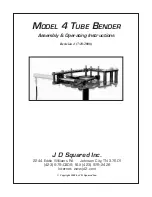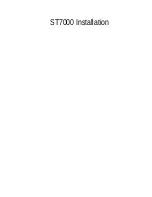
(Special 2). The sine wave setting is probably the most easily recognized, but the smooth response of the triangle
wave or the intensity of SP1 or SP2 typically produce better results. See figure 4-2.
Dly A - B
Controls the delay time of flange voice A or B. Shorter delay times produce a more dramatic, deeper sweeping
sound. Ranges from 0 to 60 milliseconds.
Out A - B
Adjusts the overall level of flange voice A or B. Ranges from Off to 100%.
Pan A - B
Controls the stereo soundfield placement of flange voice A or B. Ranges from -99 to 99.
Out L - R
Controls the output level of the left or right side of the flanger. Ranges from Off to 100%.
Phasers
The Phaser or “Phase Shifter” as it is sometimes called, is a classic effect from the 70's that uses phase cancellation to create a warm sweeping
effect. The effect is created by making a copy of a signal and moving it in and out of phase while mixing it with the original signal. As it moves,
different frequencies are cancelled out creating a smooth curling sound. There is also a feedback control that sends the shifting signal back
into the phaser's input. This intensifies the sound even more.
When do I use a Phaser?
A great example of this can be heard most when you listen to music of the 70’s. Guitarist of the day loved
their Phasers. A Phaser is a great effect to use when playing clean and funky rhythms.
Phaser Parameters
:
Dry: Lvl
Controls the level of the dry (uneffected) signal. Ranges from Off to 100%.
Balance
Controls the positioning of the dry signal in the stereo soundfield. Ranges from -99 (all left) to 99 (all right).
Speed
Controls the Low Frequency Oscillator (LFO) speed of the phaser. Ranges from 0.06 to 16.0 Hz.
Depth
Controls the intensity of the phaser effect. High settings of DEPTH combined with high settings of FDBCK produce
dramatic, synth-like textures. Ranges from 0 to 30 milliseconds.
FdBck
Controls how much of the flanged signal is fed back to the input of the Module. The FDBACK Parameter is what
gives phasers their distinctive resonating sound. Ranges from -99% to 99%.
WvFrm
Selects which waveform the LFO follows. Options for this control include sine, triangle, SP1 (Special 1), and SP2
(Special 2). The sine wave setting is probably the most easily recognized, but the smooth response of the triangle
wave or the intensity of SP1 or SP2 typically produce better results. See figure 4-2.
Out A - B
Adjusts the overall level of phaser voice A or B. Ranges from Off to 100%.
Pan A - B
Controls the stereo soundfield placement of phaser voice A or B. Ranges from -99 to 99.
RP-20 Valve
User Guide
Section - 4 Editing Modules
39
Содержание RP-20 VALVE
Страница 8: ...RP 20 Valve User Guide VI...
















































